Using an air purifier regularly and replacing HEPA filters on time could require some extra money in your budget. But why not just wash the HEPA filter instead of replacing it?
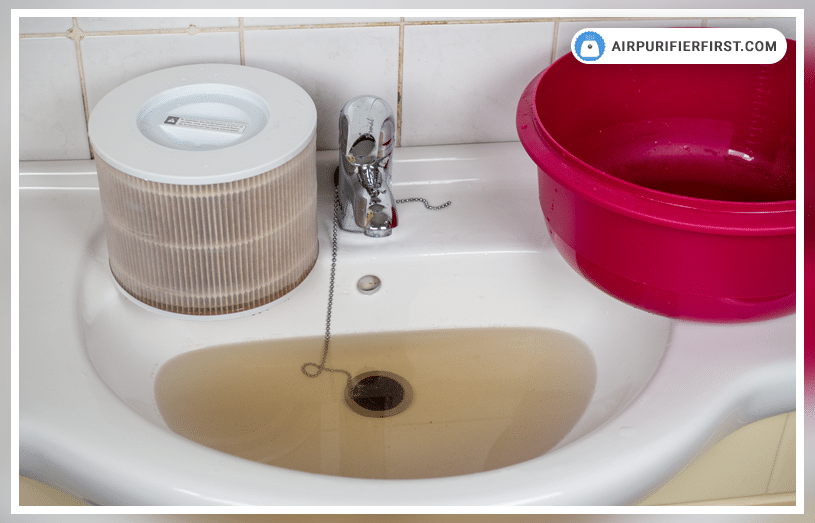
Table of Contents
Before I answer the question, I think that we all must ask ourselves: is our health worth the risk of washing or cleaning HEPA filters, or should we simply invest in new filters regardless? I tested three different HEPA filters that I had been using for some time, and the data I got supports the manufacturers’ stance that you shouldn’t wash a HEPA filter.
In my experiments, washing a HEPA filter reduced its efficiency by about 15-23%, which is significant.
But that’s not the only problem. These filters can be damaged when washed, which can get worse with every new washing and even completely destroyed if dipped in water for too long. Also, the filters I tested shrunk, resulting in a gap between them and the air purifier’s frame when reinserted. This allowed polluted air to bypass the filter easily.
What Will Happen If You Wash a HEPA Filter?
This is a question I’ve been asked many times, and I get it over and over, which doesn’t surprise me, considering that replacement filters usually surpass the initial investment of the air purifier over time.
Many brands put “washable filters” in their advertising, a term that typically applies to pre-filters or, in some cases, activated carbon filters. Don’t get confused by this trick! HEPA filters usually can’t be washed because the water ruins the HEPA filter’s structure and lowers its efficiency.
I tested three different HEPA filters by washing them with water and baking soda. After allowing them to dry for over 24 hours, I reinserted them into air purifiers and tested their performance in controlled environments, comparing the outcomes to those of brand-new filters.
The results showed that brand-new HEPA filters performed significantly better than the washed ones, showing a 15-23% better efficiency. This performance gap is expected to rise with each wash of the filter. Of course, if it doesn’t get destroyed entirely with water.
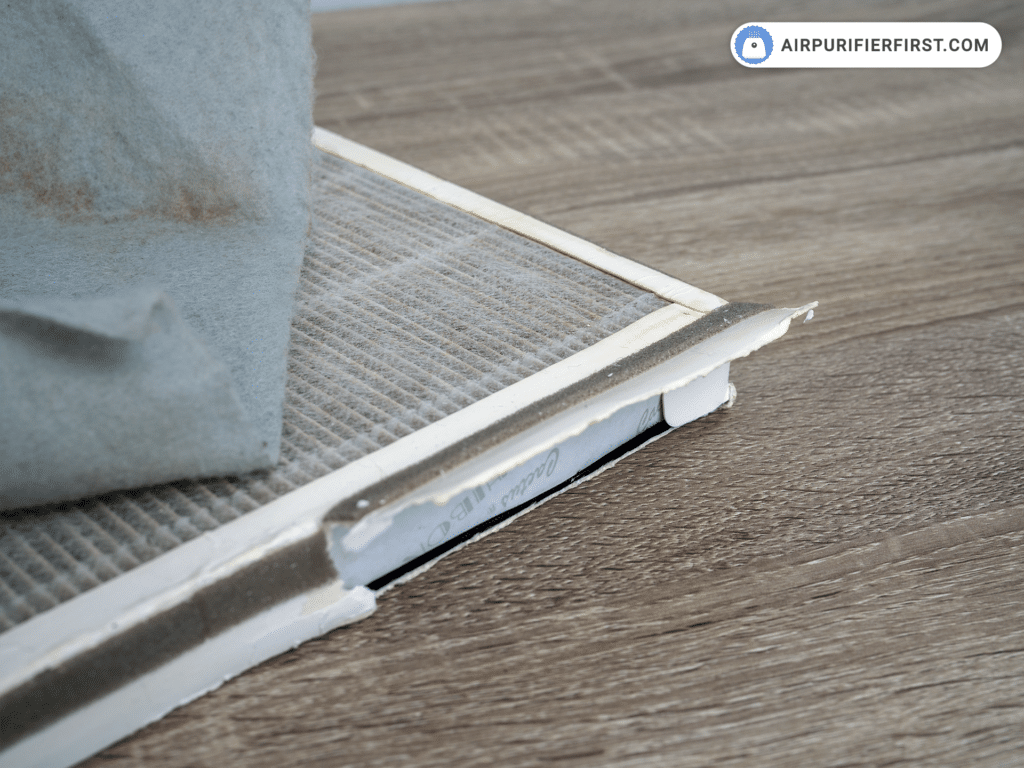
Indeed, water can easily damage HEPA filters, destroy their structure, and shrink them. The filters I experimented with lost their efficiency and shrank, creating gaps that allowed pollutants to bypass the filter and re-enter the air.
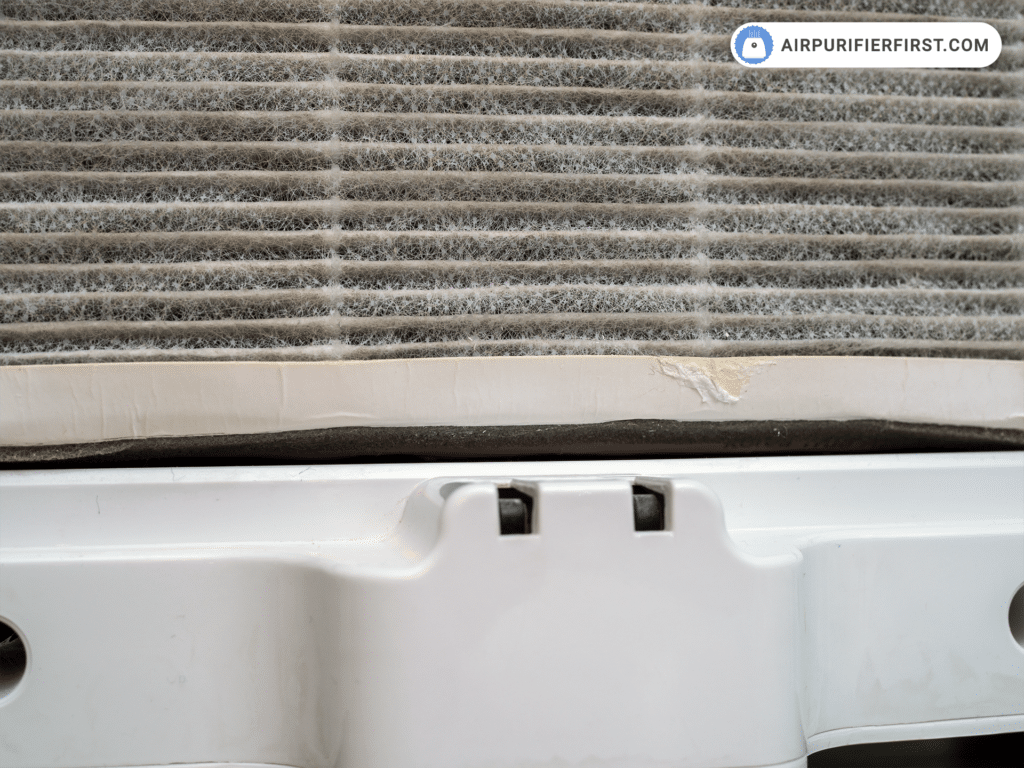
This reduces the filtration efficiency and hardly impacts the filter’s performance, further strengthening my recommendation to invest in new HEPA filters rather than trying to wash them.
Moreover, poorly drying a washed HEPA filter can stimulate mold growth inside the filter, compromising its efficiency and creating a significant health risk.
How Did I Wash the HEPA Filters?
For this experiment, I didn’t use any special equipment or chemicals to wash the HEPA filters; instead, I used baking soda to disinfect the filters a bit.
After washing each filter in water for approximately 10 minutes or more, I placed them in a dry area and allowed more than 24 hours for them to fully dry.
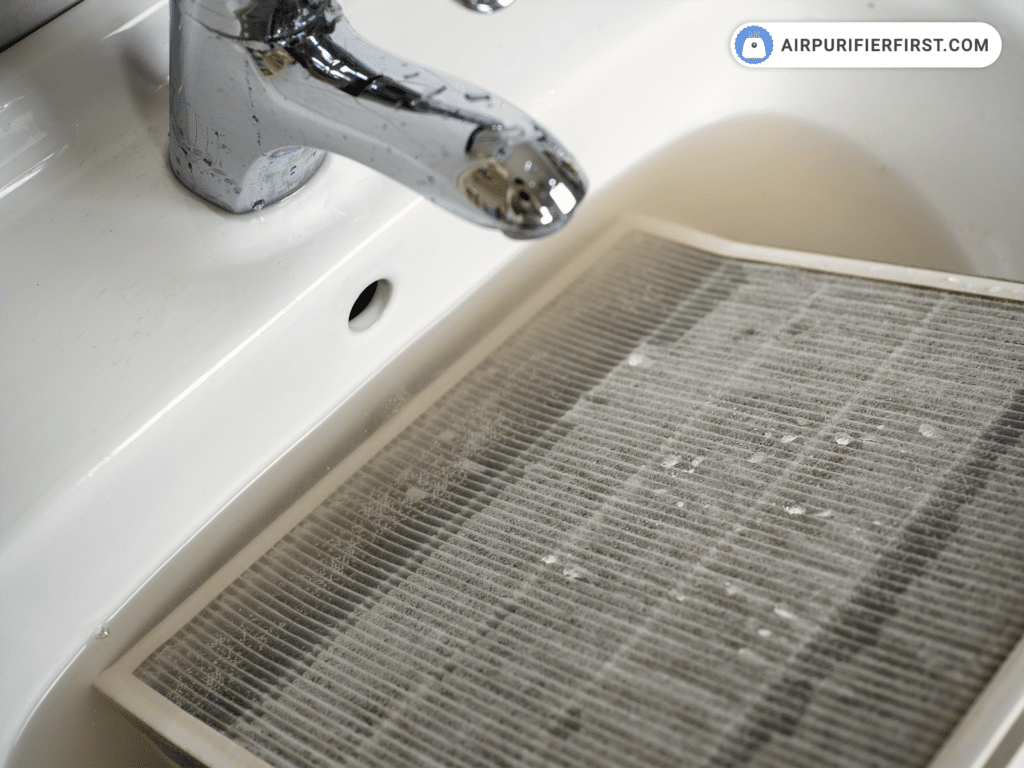
What makes this test interesting is the fact that I have been using these filters in air purifiers that I use in three totally different environments.
The first filter, the HEPA 1, was used in an air purifier to reduce cigarette smoke in my room, which explains its yellowish color and why it’s the dirtiest filter on the list.
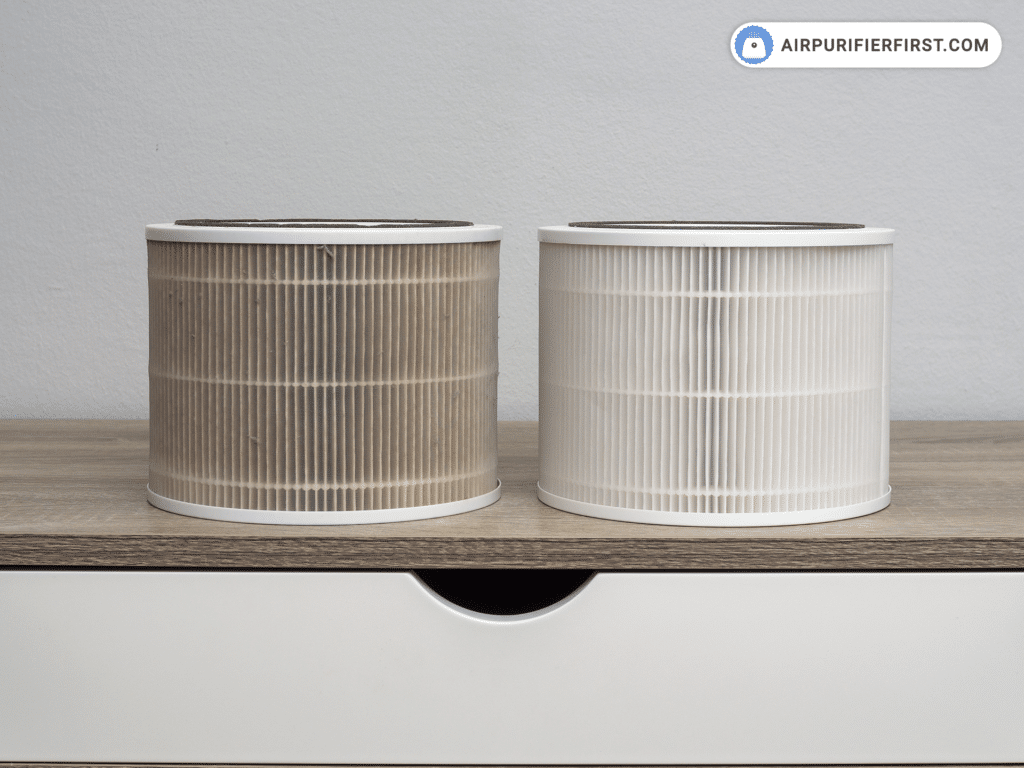
As you can see in the image above, the used filter appears significantly dirtier than the new one, and there is clear evidence of their difference. According to the data, the efficiency of the washed filter decreased by around 20%.
The HEPA 2 was used during my kitchen renovation; therefore, it was contaminated with industrial dust.
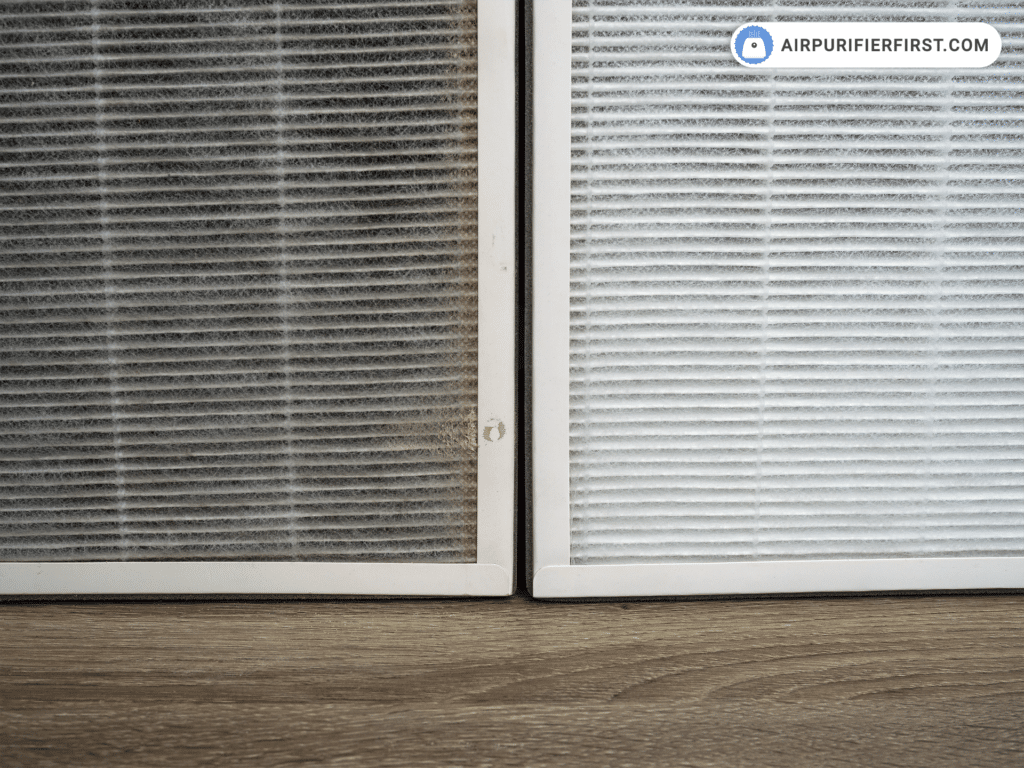
The one on the left is the old dirty filter, which efficiency dropped by approximately 23% after washing.
The last one, the HEPA 3, was placed in an environment with pets, specifically a rabbit and two parrots. This one is the least dirtier, which is, I believe, the reason its efficiency is reduced by just 15%.
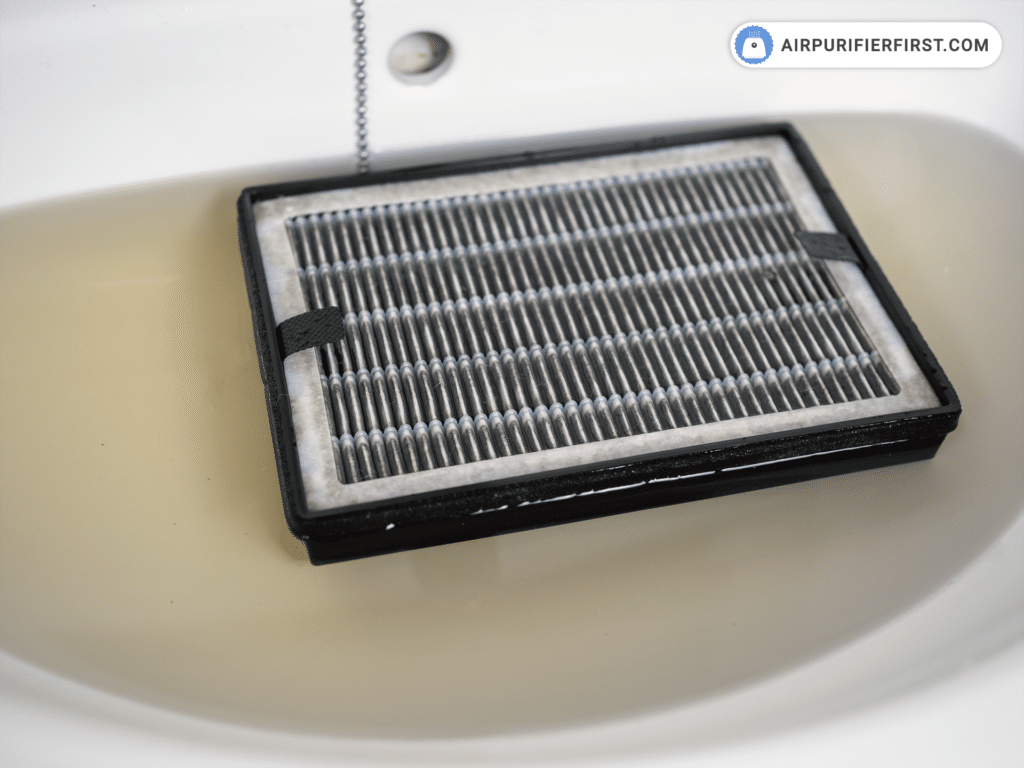
In conclusion, all these filters experienced a decrease in efficiency after washing, confirming that cleaning a HEPA filter may not be the wisest choice.
But Wait, You Can Prolong The Life of a HEPA Filter
You shouldn’t wash a HEPA filter. Instead, you can extend its lifespan with a few simple steps.
To ensure your HEPA filter lasts longer, it’s crucial to clean the pre-filter regularly, ideally twice a month, or even more frequently if your air purifier is used in a place with pets.
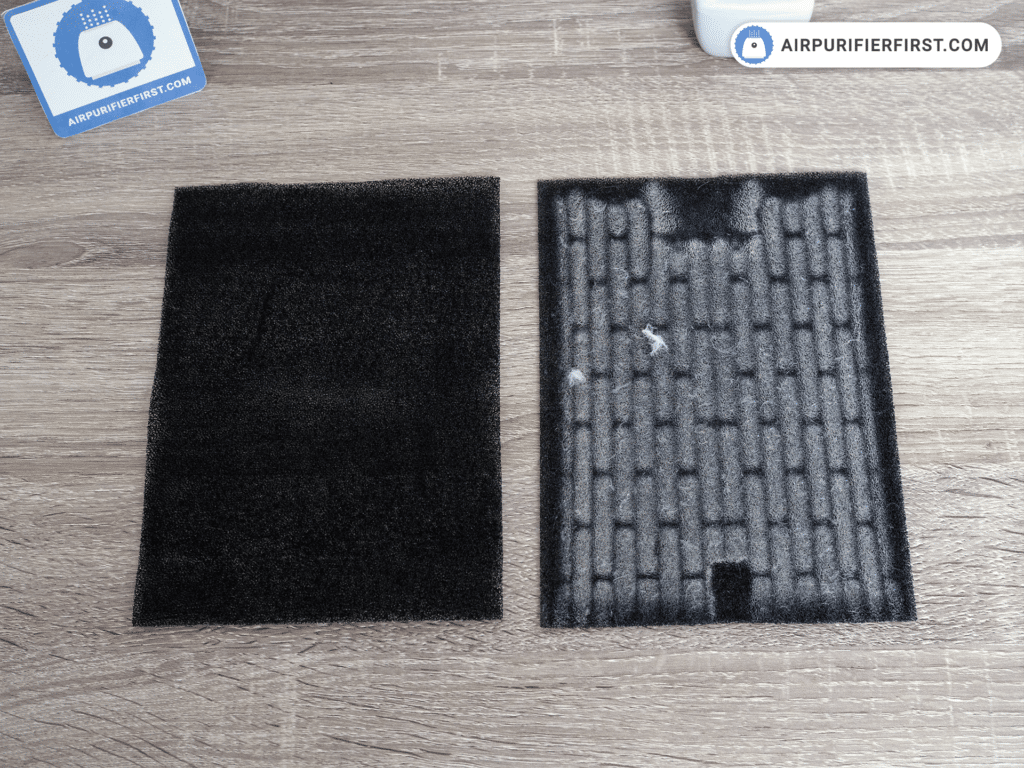
Additionally, make sure to remove the dust collected on air inlets and the device itself.
The last piece of advice is to choose an air purifier with this filter order: a pre-filter, carbon filter, and HEPA filter. This setup allows the pre-filter and carbon filter to capture large particles before they reach the HEPA filter, thereby prolonging its lifespan.
Final Thoughts
Data suggest that washing a HEPA filter is not recommended, as it can reduce its efficiency by approximately 15-23%. However, reduced efficiency isn’t the only issue; washing a HEPA filter can also cause complete damage or mold growth inside it.
In my opinion, purchasing a new filter is a much better solution than cleaning the old one. It would be great if you would regularly clean the pre-filter, and it would also extend the life of the HEPA filter.
Furthermore, I would rather buy a third-party HEPA filter than wash the original HEPA filter.
If you have any questions or feel there’s something I haven’t covered in this blog post, please feel free to use the comment section below.
Leave a Reply